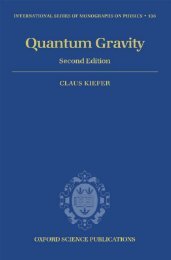Three Roads To Quantum Gravity
Three Roads To Quantum Gravity
Three Roads To Quantum Gravity
You also want an ePaper? Increase the reach of your titles
YUMPU automatically turns print PDFs into web optimized ePapers that Google loves.
MANY OBSERVERS, NOT MANY WORLDS<br />
43<br />
different from what seems to be coming out of the equations of<br />
the conventional approach to quantum cosmology. There,<br />
each solution seems to have within it descriptions of an<br />
in®nite number of universes. These universes differ, not only<br />
in the answers that the theory gives to questions, but by the<br />
questions that are asked.<br />
Everett's relative-state form of the theory must therefore be<br />
supplemented by a theory of why what we observe corresponds<br />
to the answers to certain questions, and not to an<br />
in®nite number of other questions. Several people have<br />
attempted to deal with this, and some progress has been<br />
made using an idea called decoherence. A set of questions is<br />
called decoherent if there is no chance that a de®nite answer<br />
to one is a superposition of de®nite answers to others. This<br />
idea has been developed by several people into an approach<br />
to quantum cosmology called the consistent histories formulation.<br />
This approach lets you specify a series of questions<br />
about the history of the universe. Assuming only that the<br />
questions are consistent with one another, in the sense that<br />
the answer to one will not preclude our asking another, this<br />
approach tells us how to compute the probabilities of the<br />
different possible answers. This is progress, but it does not go<br />
far enough. The world we experience is decoherent but, as has<br />
been convincingly shown by two young English physicists,<br />
Fay Dowker and Adrian Kent, so are an in®nite number of<br />
other possible worlds.<br />
One of the most dramatic moments I've experienced during<br />
my career in science was the presentation of this work at a<br />
conference on quantum gravity in Durham, England, in the<br />
summer of 1995. When Fay Dowker began her presentation on<br />
the consistent histories formulation, that approach was<br />
generally regarded as the best hope for resolving the problems<br />
of quantum cosmology. She was a postdoc under James<br />
Hartle, who had pioneered the development of the consistent<br />
histories approach to quantum cosmology, and there was<br />
little indication in her introduction of what was coming. In a<br />
masterful presentation she built up the theory, elucidating<br />
along the way some of its most puzzling aspects. The theory<br />
seemed in better shape than ever. Then she proceeded to


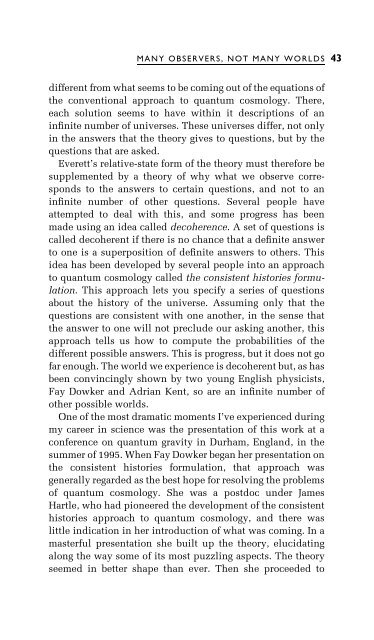
![arXiv:1001.0993v1 [hep-ph] 6 Jan 2010](https://img.yumpu.com/51282177/1/190x245/arxiv10010993v1-hep-ph-6-jan-2010.jpg?quality=85)
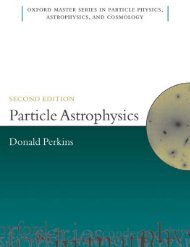
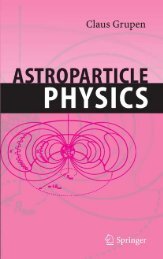
![arXiv:1008.3907v2 [astro-ph.CO] 1 Nov 2011](https://img.yumpu.com/48909562/1/190x245/arxiv10083907v2-astro-phco-1-nov-2011.jpg?quality=85)
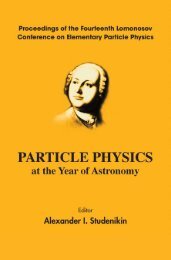
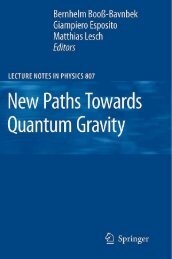
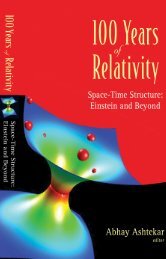
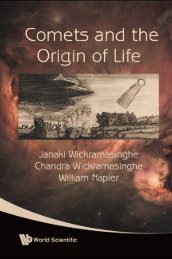
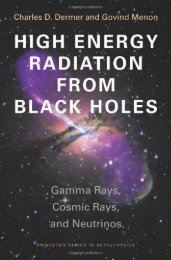
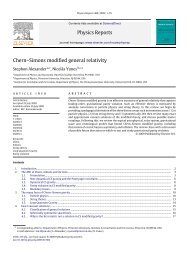
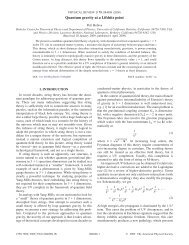
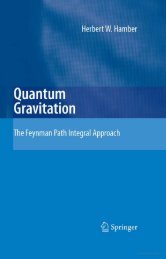
![arXiv:1002.4928v1 [gr-qc] 26 Feb 2010](https://img.yumpu.com/41209516/1/190x245/arxiv10024928v1-gr-qc-26-feb-2010.jpg?quality=85)
![arXiv:1206.2653v1 [astro-ph.CO] 12 Jun 2012](https://img.yumpu.com/39510078/1/190x245/arxiv12062653v1-astro-phco-12-jun-2012.jpg?quality=85)
